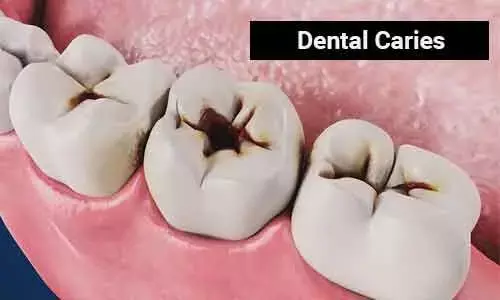- Home
- Medical news & Guidelines
- Anesthesiology
- Cardiology and CTVS
- Critical Care
- Dentistry
- Dermatology
- Diabetes and Endocrinology
- ENT
- Gastroenterology
- Medicine
- Nephrology
- Neurology
- Obstretics-Gynaecology
- Oncology
- Ophthalmology
- Orthopaedics
- Pediatrics-Neonatology
- Psychiatry
- Pulmonology
- Radiology
- Surgery
- Urology
- Laboratory Medicine
- Diet
- Nursing
- Paramedical
- Physiotherapy
- Health news
- Fact Check
- Bone Health Fact Check
- Brain Health Fact Check
- Cancer Related Fact Check
- Child Care Fact Check
- Dental and oral health fact check
- Diabetes and metabolic health fact check
- Diet and Nutrition Fact Check
- Eye and ENT Care Fact Check
- Fitness fact check
- Gut health fact check
- Heart health fact check
- Kidney health fact check
- Medical education fact check
- Men's health fact check
- Respiratory fact check
- Skin and hair care fact check
- Vaccine and Immunization fact check
- Women's health fact check
- AYUSH
- State News
- Andaman and Nicobar Islands
- Andhra Pradesh
- Arunachal Pradesh
- Assam
- Bihar
- Chandigarh
- Chattisgarh
- Dadra and Nagar Haveli
- Daman and Diu
- Delhi
- Goa
- Gujarat
- Haryana
- Himachal Pradesh
- Jammu & Kashmir
- Jharkhand
- Karnataka
- Kerala
- Ladakh
- Lakshadweep
- Madhya Pradesh
- Maharashtra
- Manipur
- Meghalaya
- Mizoram
- Nagaland
- Odisha
- Puducherry
- Punjab
- Rajasthan
- Sikkim
- Tamil Nadu
- Telangana
- Tripura
- Uttar Pradesh
- Uttrakhand
- West Bengal
- Medical Education
- Industry
Vitamin D receptor gene polymorphism tied to dental caries, Study reports

The influence of environmental factors on dental caries is a well-established fact; however, little is known about the impact of genetics on the caries process.
Vitamin D receptor (VDR) gene polymorphism does not seem to have a role in the incidence of dental caries in the studied population; however, it may have a role in the severity of the caries process, suggest a study published in the Indian Journal of Dental Research.
GB Protyusha and B Sivapatha Sundharam from the Department of Oral Pathology and Microbiology, Meenakshi Ammal Dental College and Hospital, MAHER University, Chennai, Tamil Nadu, India aimed to analyze the association between the vitamin D receptor (VDR) gene polymorphism and dental caries.
The authors also compared the risk of dental caries between individuals with homozygous (tt and TT) genotype and heterozygous (Tt) genotype. Further, this study also aimed to compare the vitamin D gene polymorphism by gender.
The investigators included a total of 196 subjects were selected based on their decayed, missing, filled teeth (DMFT) index according to the WHO guidelines (1997), and were divided into two groups based on caries experience. The case group was further classified into low and high caries groups.
The saliva samples were collected, DNA was extracted, and Vitamin D receptor Taq1 (T/C) gene polymorphism was analyzed by polymerase chain reaction–based restriction fragment length polymorphism and visualized under 2% agarose gel.
The study revealed that there was no significant difference in the vitamin D receptor Taq1 gene polymorphism and dental caries between the case and control group.
However, further stratification showed a statistically significant difference based on caries experience in the study group. The heterozygous mutant genotype (Tt) was associated with a higher caries experience (62.1%) (P = 0.008) with the frequency of 't' allele being 77% as compared to 'T' allele (63.6%) in the high caries group.
As a result, the authors concluded that the vitamin D receptor gene polymorphism does not seem to have a role in the incidence of dental caries in the studied population; however, it may have a role in the severity of the caries process.
For further reference, log into:
Protyusha G B, Sundharam B S. Analysis of the association between polymorphisms in Vitamin D receptor gene and dental caries. Indian J Dent Res 2021;32:3-7
Dr. Nandita Mohan is a practicing pediatric dentist with more than 5 years of clinical work experience. Along with this, she is equally interested in keeping herself up to date about the latest developments in the field of medicine and dentistry which is the driving force for her to be in association with Medical Dialogues. She also has her name attached with many publications; both national and international. She has pursued her BDS from Rajiv Gandhi University of Health Sciences, Bangalore and later went to enter her dream specialty (MDS) in the Department of Pedodontics and Preventive Dentistry from Pt. B.D. Sharma University of Health Sciences. Through all the years of experience, her core interest in learning something new has never stopped. She can be contacted at editorial@medicaldialogues.in. Contact no. 011-43720751
Dr Kamal Kant Kohli-MBBS, DTCD- a chest specialist with more than 30 years of practice and a flair for writing clinical articles, Dr Kamal Kant Kohli joined Medical Dialogues as a Chief Editor of Medical News. Besides writing articles, as an editor, he proofreads and verifies all the medical content published on Medical Dialogues including those coming from journals, studies,medical conferences,guidelines etc. Email: drkohli@medicaldialogues.in. Contact no. 011-43720751


